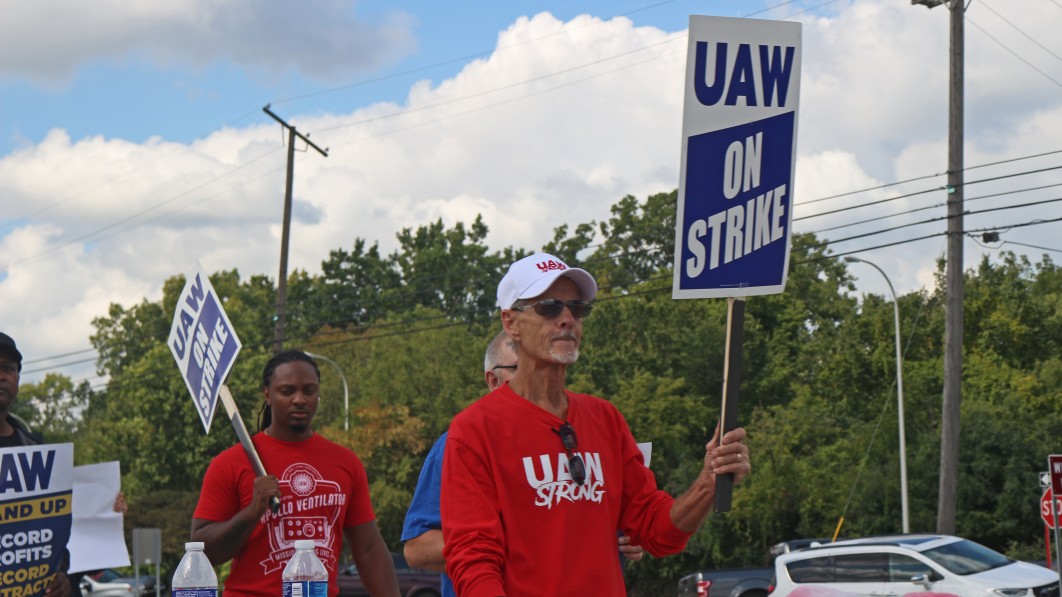
If the future of driving is plugged into the electric vehicle, than the future of the industry—the car makers who design and shape the cars, the people who build them—is teetering on the eventual outcome of a “once-in-a-century” technology shift.
That’s the argument put forth by veteran New York Times reporter Jack Ewing in a recently published article—prompted no doubt by the ongoing strike by the United Auto Workers in Michigan and other states. The Times headline reads “Battle Over Electric Vehicles Is Central to Auto Strike.”
Ewing characterizes the work stoppage as a “battle” between the industry powers in Detroit and the UAW, and suggests that the drama isn’t only about money, but also about the union’s role in a world where gasoline-powered cars emerge as the minority.
“Workers are trying to defend jobs as manufacturing shifts from internal combustion engines to batteries,” he writes. “Because they have fewer parts, electric cars can be made with fewer workers than gasoline vehicles.’’ He quotes John Casesa, who previously headed strategy at Ford Motor, ““The transition to EVs is dominating every bit of this discussion…it’s all about positioning the union to have a central role in the new electric industry.”
The story chronicles how manufacturers, including General Motors, Ford and Stellantis, are investing billions of dollars in the transition, which Ewing writes (perhaps as an overstatement) is “the biggest technological transformation since Henry Ford’s moving assembly line started up at the beginning of the 20th century.”
Ewing capsulizes all the usual concerns and arguments that have led to the strike, now entering its second week. For industry workers, for instance, he says that the “biggest concern is that electric vehicles have far fewer parts than gasoline models and will render many jobs obsolete.”
For the car makers, despite the money being spent, he writes that they’re reaping little if any profit, and that, according to the companies, agreeing to the union’s demands could bankrupt them. The story quotes Jim Farley, Ford’s chief executive, who said last week, “We want to actually have a conversation about a sustainable future, not one that forces us to choose between going out of business and rewarding our workers.”
The reaction from the union is fairly predictable. Ewing quotes Karl Brauer, executive analyst at iSeeCars.com, an online marketplace, who suggests the UAW is “not going to have a lot of patience for sob stories.”
Ewing makes a point in his story not to ignore the elephant in the room: Tesla. In fact, he says, a positive outcome from the strike for the union would likely give it a strong bargaining chip in an effort to organize employees at Tesla “and other nonunion carmakers like Hyundai, which is planning to manufacture electric vehicles at a massive new factory in Georgia.”
The Times’ full story can be found here. A subscription may be required.
Related Video
